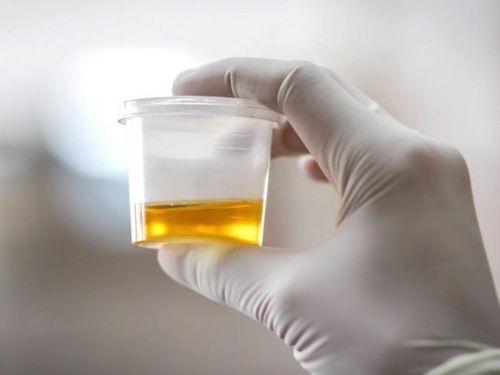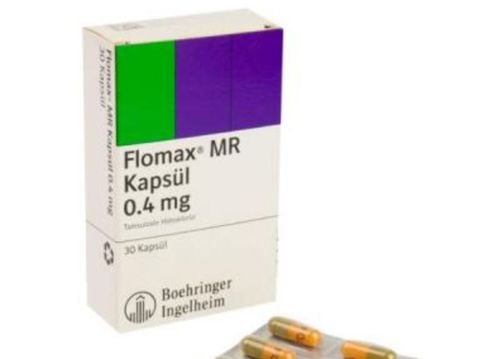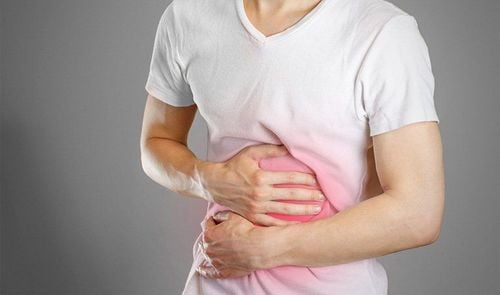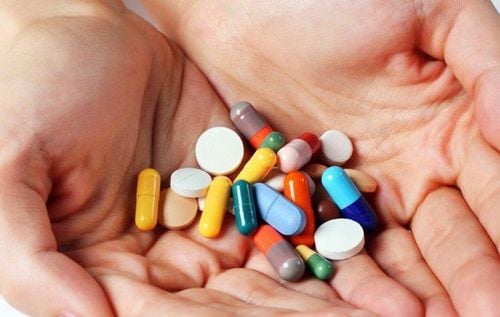This is an automatically translated article.
The article is expertly consulted by Master, Doctor Le Phuc Lien - Urologist - Department of General Surgery - Vinmec Nha Trang International General Hospital. The doctor has more than 12 years of experience in the field of urology and specialized urology.A UTI or urinary tract infection is an infection that occurs in the urinary excretory system in the body. The disease can lead to very serious complications such as impaired kidney function or sepsis. With the indiscriminate use of antibiotics leading to today's complicated antibiotic resistance situation, the treatment of UTIs causes a lot of difficulties for doctors. Therefore, updating the latest UTI treatment regimen is extremely necessary.
1. Causes of UTIs

Nhiễm trùng tiểu có thể dẫn đến biến chứng nghiêm trọng như suy giảm chức năng thận hay nhiễm trùng huyết
Normally, the urinary tract will have the characteristics to be able to fight infection by inhibiting the growth of bacteria and eliminating those pathogens. However, when there are several factors that increase the risk of bacteria entering the urinary tract, they will stay and multiply there until an actual infection occurs.
A few cases of urinary tract infections are caused by bacterial infections coming from the bloodstream, but this percentage is not much. The vast majority of UTIs are caused by gram-negative bacteria. The most common bacteria that cause UTIs are Escherichia coli (E.coli), Klebsiella Proteus, Pseudomonas or Enterobacter. Gram-positive bacteria are less common. Rarer are fungi, viruses...
2. Urinary tract infection classification and treatment
Urinary tract infections can be classified into the following categories:2.1 Acute UTI (uncomplicated) Infection occurs in only one site of the urinary system, if treated properly, the inflammation will completely resolve, without recurrence. The disease occurs in people with normal urinary tract structure and function. The most common is acute cystitis.
The treatment regimen for this case is to use appropriate antibiotics within 7-10 days. Due to the high prevalence of bacterial resistance to ampicillin and amoxicillin antibiotics (>20%, possibly as high as 40-80%), the use of these drugs alone is not currently recommended. For patients in good general condition, a short regimen, eg 3 days, can be used. Commonly used UTI antibiotics are:
Sulfamethoxazol-Trimethoprim 800/160mg: 1 tablet x 2 times/day, used for 3 days. Ciprofloxacin 250-500mg: 1 tablet x 2 times/day, used for 3 days. Ofloxacin 200mg: 1 tablet x 2 times/day, used for 3 days. Pefloxacin Monodose 400mg: 2 tablets x 1 time, use 1 dose. Pefloxacin 400mg: 1 tablet x 2 times/day, used for 3 days. Norfloxacin 400mg: 1 tablet x 2 times/day, used for 3 days. Levofloxacin 250mg: 1 tablet/day, used for 3 days. Gatifloxacin 400mg: 1 tablet x 1 time, use 1 dose. Cefixime 400mg: 1 tablet/day, used for 3 days. Cefuroxime 125-250mg: 1 tablet x 2 times/day, used for 3-7 days. Cefpodoxime 100mg: 1 tablet x 2 times/day, used for 3 days. Fosfomycin 3g: 1 pack x 1 time, use 1 dose. Amoxicillin – Clavulanic Acid 625mg: 1 tablet x 2 times/day, used for 5-7 days. Ampicillin-Sulbactam 375mg: 1 tablet x 2 times/day, used for 5-7 days. Nitrofurantoin 100mg: 1 tablet x 2 times/day, used for 5-7 days. 2.2 Complicated UTIs (chronic/complicated) In this case, patients can often have structural or functional abnormalities of the urinary system, patients with comorbidities, increased virulence of the bacteria. properties and antibiotic resistance. The majority of these patients are men.
Factors suggesting the possibility of complicated UTI are:
Use of catheters, stents or splints (urethral, ureter, kidney) or intermittent vesicoureteral catheter use. The amount of urine left after urinating is >100ml. Obstructive pathology from any cause, e.g. bladder outlet obstruction, stones, and tumors. Bladder-ureteral reflux. Surgery to create loops or ileostomy pouches. Injury to the urinary tract epithelium due to chemotherapy/radiation. Renal failure, kidney transplant, diabetes mellitus, immunocompromised. At this point, the treatment regimen depends on the severity of the disease. Appropriate antibiotic therapy should be combined with management of urinary tract abnormalities.
Antibiotics suitable for the treatment of moderate to severe complicated UTIs include:
Ceftolozane 1g and tazobactam 0.5g (Zerbaxa 1.5g): 1.5g IV every 8 hours, infused over 1 hour in 7 days. Ceftazidime 2g and avibactam 0.5g (Avycaz 2.5g): 2.5g IV every 8 hours, infused over 2 hours for 7-14 days. Ciprofloxacin: If taking oral form, use 20-40mg/kg/day, divided into 2 times (maximum 1500mg/day). If used by injection, use 6-10mg/kg/day every 8 hours for 10-21 days (maximum dose 400mg). Fosfomycin: 3g every 2-3 days for 3 doses (used mainly in male patients). Levofloxacin: 250mg/time/day x 10 days or 750mg/time/day x 5 days. Sulfamethoxazol-Trimethoprim: 1 Double-strength tablet every 12 hours for 7-10 days. Nitrofurantoin: 50-100mg/dose, administered every 6 hours for 7 days or for at least 3 days after urine is sterile.
3. How to prevent urinary tract infections
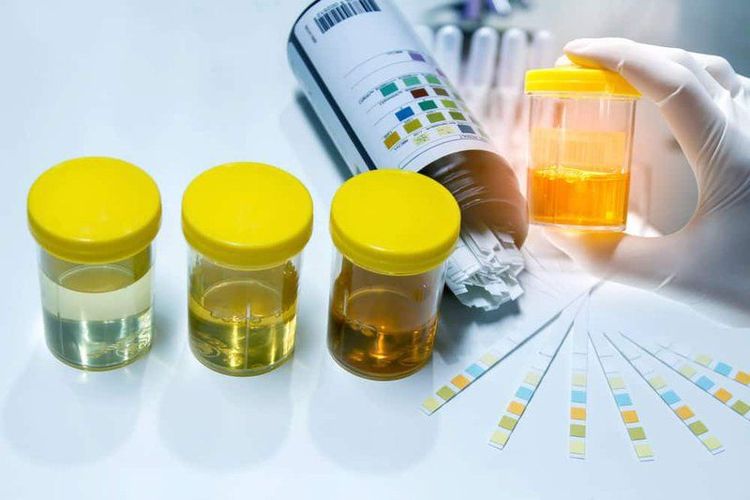
Hình ảnh chuẩn đoán nhiễm trùng tiểu
Urinary tract infections can be prevented by some of the following measures:
Drink enough water every day. An adult needs to drink 1.5-2 liters of water per day. Drinking enough water helps the kidneys to increase the formation and excretion of urine, increase the expulsion of bacteria, and limit infection upstream. Do not hold urine every time you need to urinate. Maintaining hygiene of the genital - urinary organs, especially for women, it is necessary to pay attention to hygiene in the days of menstruation. When defecating or urinating, wipe from front to back to avoid spreading bacteria from the anus to the vagina and urethra. Avoid irritation of the genital tract mucosa, abuse of products with spray nozzles, scented powder, ... of unknown origin. For patients who have ever had or are suffering from kidney/urinary stones, they must regularly visit and screen for UTIs for early treatment and stone removal when indicated. When urinary tract infections must be treated properly and thoroughly right from the start, to prevent recurrence. Urinary tract infections can be prevented and treated if the patient is detected early and actively goes to the doctor for treatment. Absolutely do not arbitrarily use the drug without a doctor's prescription because it can make the condition worse, causing unnecessary consequences.
Please dial HOTLINE for more information or register for an appointment HERE. Download MyVinmec app to make appointments faster and to manage your bookings easily.
Article referenced source: Ministry of Health



